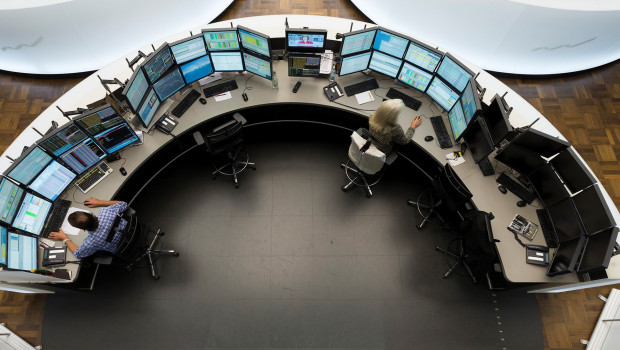
Source: Sharecast
The Stoxx 600 was down 0.9% by the close of play at 544.94 – its lowest level since 14 May.
London's FTSE 100 fared relatively well despite trading close to record highs, falling just 0.4%, as strong gains in the defence and oil sectors limited downside. However, markets in Frankfurt, Zurich, Paris, Milan and Madrid all registered losses of 1% or more.
News that Israel's Air Force attacked Iran's nuclear weapons programme and ballistic missile sites overnight prompted a scaling back of risk appetite across global stock markets, while oil prices surged. Several military figures were killed, including two high-level commanders.
Brent was up 6.4% at $73.78 a barrel, having jumped to a high of $78.50 earlier on – its highest since January – as the risk of supply disruptions increased, with Iran responsible for 5% of global oil supplies.
Iran said none of its oil installations had been hit, but investors remained concerned about the impact of renewed geopolitical tensions in the region on supplies, with Tehran widely expected to retaliate.
Gold, meanwhile, was up 1.4% at $3,448.60 an ounce, pushing back up towards recent record highs as investors retreated into safe-haven assets.
"The weekend will show whether this or an escalation is on the cards. From this investors will take their cue. Either way, a protracted conflict in the Middle East is likely to lead to higher oil prices and increase inflationary pressures in the medium-term," said Axel Rudolph, senior technical analyst at IG.
In macro news, German consumer price inflation was confirmed at 2.1% in May, unchanged from the preliminary estimate released two weeks ago, and matching the lowest level since October 2024. German wholesale price inflation slowed to an annual rate of 0.4% in May, down from 0.8% in April, continuing to pull back after hitting a recent two-year high of 1.6% in February.
Meanwhile, industrial production across the Eurozone slumped 2.4% in April, official figures showed on Friday, missing expectations of -1.7%, following a 2.4% rise in March.
Oil, defence stocks buck the trend
Oil majors BP, Shell, Equinor and TotalEnergies were all up as the price of crude jumped, while defence stocks BAE Systems, QinetiQ, Babcock and Rheinmetall all traded higher as rising expectations of further conflict helped the business outlook.
Similarly, shipping stocks Frontline, AP Moeller-Maersk and Aker BP were in favour as potential disruption risks raise the probability of higher freight rates.
In contrast, economic bellwethers, such as those in the banking sector, were being sold off, including Deutsche Bank, Barclays, BNP Paribas and HSBC.
Drugmaker AstraZeneca finished lower on the news that it has entered a strategic research collaboration with Chinese firm CSPC Pharmaceuticals Group.